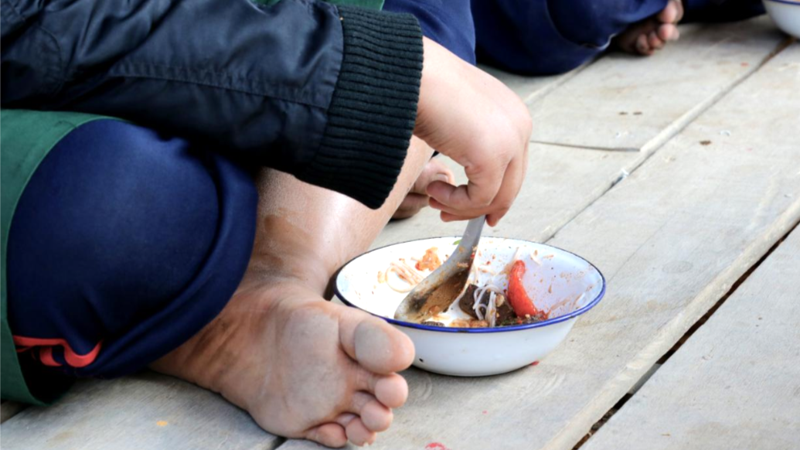(The Center Square) – The Office of the Inspector General is raising renewed concerns about the safety of unaccompanied alien children (UACs) being placed with sponsors by the U.S. Department of Health and Human Services.
The latest report comes after multiple others and hearings have highlighted serious deficiencies within the UAC program administered by the Office of Refugee Resettlement (ORR), which is housed within HHS’ Office of the Administration for Children & Families.
Allegations of sexual abuse of children in HHS/ORR-contracted facilities have continued after lawmakers became aware that ORR lost track of UACs once placed with a sponsor. Several investigative reports identified over 100,000 children ORR can’t account for within a certain timeframe, meaning the number is potentially higher.
A Florida grand jury also alleged ORR was “facilitating the forced migration, sale, and abuse of foreign children. This process exposes children to horrifying health conditions, constant criminal threat, labor and sex trafficking, robbery, rape and other experiences not done justice by mere words.”
A Texas-based group, Alliance for a Safe Texas, has also identified the need to implement regulatory reform at the state level, with the majority of HHS-contracted facilities housing unaccompanied minors in Texas.
The OIG identified 16,790 children in ORR care who were released to sponsors in March and April 2021 to conduct its analysis. Of them, the report focused on a sample of 342 children to ensure it “included all sponsor categories and facility types.” The OIG then reviewed ORR’s sponsor screening and post-release follow up calls for the 342 UACs.
According to a federal law passed in 2003, “When a child who is not accompanied by a parent or legal guardian is apprehended by immigration authorities, the child is transferred to the care and custody of” ORR. Federal law requires ORR to provide them with food, shelter and medical care, to vet sponsors who apply to care for UACs prior to placement, and to release them “to safe settings with sponsors (usually family members), while they await immigration proceedings.”
The OIG found that in 35% of the 342 UAC cases evaluated, sponsor-submitted IDs contained legibility concerns.
In 22% of UAC cases, the OIG found that ORR did not conduct timely safety and well-being follow up calls; in 18% of cases, follow up calls were not documented in children’s case files at all.
OIG investigators also found that of 19% of children who were released to sponsors with pending FBI fingerprint or state child abuse and neglect registry checks, the UAC case files were never updated with the results.
The investigation also found that in 16% of cases evaluated, one or more required sponsor safety checks lacked any documentation indicating that the checks were ever conducted.
OIG investigators also discovered that ORR failed to conduct mandatory home studies in two cases; four cases “raise concerns about whether ORR guidance on discretionary home studies should offer more specificity.”
In 5% of evaluated cases, sponsor records within ORR’s case management system were not updated with child welfare outcomes or sponsorship history, according to the report.
The OIG recommended that ACF implement additional safeguards to ensure all safety checks are conducted and documented, as required by law, prior to approving the release of children to sponsors. Other recommendations include developing a reference guide to help case managers better evaluate sponsors’ identity; taking additional steps to ensure that mandatory home studies are conducted when required; providing additional guidance for case managers on when to consider recommending discretionary home studies; ensuring that sponsor records in a national database accurately capture information about the sponsors, sponsorship history and information obtained after UACs; and developing effective monitoring mechanisms to identify UACs that don’t receive timely follow up calls after they are released to sponsors.
ACF has concurred with all OIG recommendations, according to the report.
The report was published after the House Judiciary Committee subpoenaed HHS in its probe questioning its lack of vetting of sponsors and reportedly releasing UACs into the custody of gang members.
Republican U.S. senators also raised concerns about ORR releasing UACs to “unvetted, potentially criminal sponsors” without considering “a sponsor’s criminal record, current illegal drug use, history of abuse or neglect, or other child welfare concerns’ necessarily disqualifying to potential sponsorship.”
From March 2003 to July 2022, ORR says it has cared for more than 409,550 children nationwide. The overwhelming majority arriving are males by a roughly 70-30 split, according to ORR data.
However, when including the most recent fiscal 2023 data, ORR was responsible for placing 582,465 UACs in all 50 states since 2015. Since 2015, the most UACs have been sent to Texas (82,391), California (68,249), and Florida (60,192), The Center Square reported.







